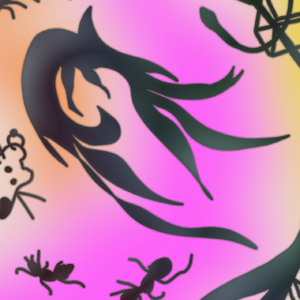Fall off: hair recycling workshop: Difference between revisions
No edit summary |
No edit summary |
||
| (One intermediate revision by the same user not shown) | |||
| Line 10: | Line 10: | ||
}} | }} | ||
[[File:4 Hair.png|300px | [[File:4 Hair.png|300px]] | ||
In the global hair trade, human hair is geographically collected from India, Myanmar and Bangladesh, processed in China, then sold to Europe and the United States. | In the global hair trade, human hair is geographically collected from India, Myanmar and Bangladesh, processed in China, then sold to Europe and the United States. | ||
| Line 26: | Line 26: | ||
''Yi Zhang (b.1996) is an interdisciplinary lives and works in between Netherlands and Belgium. Their work delves into the intricacies of human experience, revealing hidden narratives and forging connections in overlooked spaces. Through diverse mediums, they uncover common human conditions across various social and cultural backgrounds. Central themes include exploring untold stories, challenging societal norms, and amplifying marginalized voices. Their installations and performances use simple, everyday-use materials to evoke embodied memories.'' | ''Yi Zhang (b.1996) is an interdisciplinary lives and works in between Netherlands and Belgium. Their work delves into the intricacies of human experience, revealing hidden narratives and forging connections in overlooked spaces. Through diverse mediums, they uncover common human conditions across various social and cultural backgrounds. Central themes include exploring untold stories, challenging societal norms, and amplifying marginalized voices. Their installations and performances use simple, everyday-use materials to evoke embodied memories.'' | ||
<gallery> | |||
DSC05531.jpg | |||
DSC05533.jpg | |||
DSC05565.jpg | |||
DSC05566.jpg | |||
DSC05568.jpg | |||
DSC05571.jpg | |||
DSC05574.jpg | |||
</gallery> | |||
Latest revision as of 11:30, 1 November 2024
| Fall off: hair recycling workshop | |
|---|---|
| Name | fall off: hair recycling workshop |
| Location | Het Wilde Weg |
| Date | 2024/07/17 |
| Time | 14:00-17:00 |
| PeopleOrganisations | Yi Zhang |
| Type | HDSC2024 |
| Web | Yes |
| No | |
In the global hair trade, human hair is geographically collected from India, Myanmar and Bangladesh, processed in China, then sold to Europe and the United States.
How the process of hair commodification results in the forced movement of people and goods and the separation of people and places? A unique situation of the hair trade is the commodification of not only people's labor in the process, but also the commodification of a part of the human body to which it belongs, and the blurring of ownership boundaries when hair leaves the body.
When we cut our hair, where does it go? It may be easy to throw hair in the trash, but it doesn't just disappear. We will explore some of the environmental impacts of human hair and the methods available to recycle it. A feminist and socio-political reflection on commodification, questioning the agency of the body through the use of shed hair and everyday fibers that are considered as trash, such as human and animal hair/textile fibers.
TRIGGER WARNING: Please note that this workshop involves hands-on interactions with human hair, sourced from local hair salons in Eindhoven. Masks and gloves will be provided for all participants. If you feel uncomfortable, please feel free to pause or leave the workshop.
- duration: 3 hours
- number of participants: max 15
- materials / tools: Through the technic of ‘felting’, we will make hair mats from human and animal hair or textile fibers
- what do participants need to prepare: It would be great if participants could collect fibers from everyday life ahead of time, can be human or animal hair, or fibers from a vacuum cleaner or dryer.
Yi Zhang (b.1996) is an interdisciplinary lives and works in between Netherlands and Belgium. Their work delves into the intricacies of human experience, revealing hidden narratives and forging connections in overlooked spaces. Through diverse mediums, they uncover common human conditions across various social and cultural backgrounds. Central themes include exploring untold stories, challenging societal norms, and amplifying marginalized voices. Their installations and performances use simple, everyday-use materials to evoke embodied memories.







